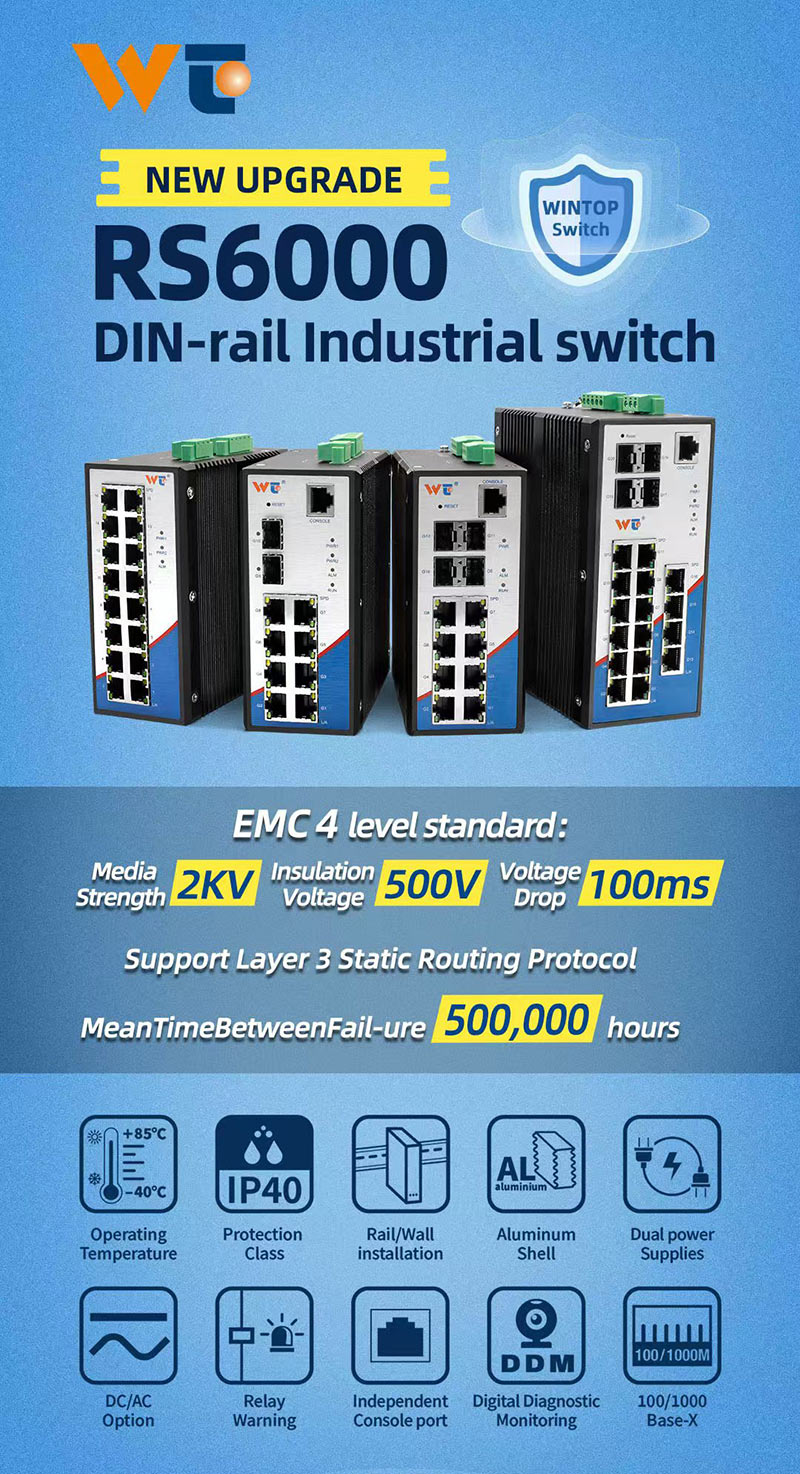The Integral Role of 8-Port Industrial-Grade Switches in Modern Industrial Networks
In the realm of industrial networking, robust and reliable connectivity is paramount. Among the myriad of devices that ensure seamless communication in industrial environments, the 8-port industrial-grade switch stands out as a crucial component. This technical article delves into the significance, features, and applications of these indispensable devices, demonstrating their pivotal role in enhancing operational efficiency and network reliability.
Understanding Industrial-Grade Switches
Industrial-grade switches are specifically designed to withstand harsh environmental conditions typically found in industrial settings such as factories, power plants, and outdoor installations. Unlike their commercial counterparts, these switches are built to endure extreme temperatures, high humidity, vibrations, and electromagnetic interference, ensuring uninterrupted network performance.
The 8-Port Advantage
An 8-port industrial-grade switch provides a balanced mix of scalability and manageability. With eight Ethernet ports, it offers sufficient connectivity for small to medium-sized industrial networks without overwhelming complexity. This port configuration is ideal for connecting various devices such as programmable logic controllers (PLCs), human-machine interfaces (HMIs), sensors, and actuators, thereby facilitating seamless data exchange and control across the network.
Key Features of 8-Port Industrial-Grade Switches
- Rugged Construction: These switches are encased in robust metal or hardened plastic enclosures, providing protection against dust, moisture, and mechanical stress. They are often rated with ingress protection (IP) codes, such as IP30 or higher, indicating their resilience against environmental hazards.
- Wide Operating Temperature Range: Industrial-grade switches can operate in temperatures ranging from -40°C to 75°C, making them suitable for use in both freezing and scorching conditions. This wide temperature tolerance ensures reliable performance in diverse industrial environments.
- Power over Ethernet (PoE) Support: Many 8-port industrial switches come with PoE capabilities, allowing them to supply power to connected devices over the Ethernet cables. This feature is particularly useful for powering remote devices like IP cameras, wireless access points, and VoIP phones, reducing the need for additional power infrastructure.
- Redundant Power Inputs: To enhance reliability, these switches often feature dual power inputs, ensuring continuous operation even if one power source fails. This redundancy is crucial for maintaining network uptime in critical applications.
- Advanced Management Features: Managed 8-port switches offer advanced network management functionalities, such as VLAN support, Quality of Service (QoS) prioritization, and network redundancy protocols like Rapid Spanning Tree Protocol (RSTP). These features facilitate optimized traffic flow, improved security, and high availability in industrial networks.
- Industrial Certifications: Compliance with industry standards and certifications, such as IEC 61850 for electric power automation and EN 50155 for railway applications, underscores the suitability of these switches for specific industrial applications.
Applications of 8-Port Industrial-Grade Switches
- Manufacturing: In manufacturing plants, these switches connect various automation systems, including PLCs, HMIs, and robotic systems, ensuring real-time communication and control. Their rugged design and reliability are essential for minimizing downtime and maintaining production efficiency.
- Energy Sector: In power plants and substations, 8-port industrial switches facilitate the monitoring and control of electrical systems. Their ability to withstand high temperatures and electromagnetic interference is critical for stable operation in such environments.
- Transportation: These switches are used in transportation systems, such as railways and highways, to connect surveillance cameras, traffic control systems, and communication devices. Their durability and compliance with transportation standards ensure reliable operation under constant vibration and varying weather conditions.
- Oil and Gas: In the oil and gas industry, where hazardous environments are common, industrial-grade switches are deployed to connect monitoring and control systems. Their explosion-proof designs and robust performance are vital for safety and efficiency.
- Smart Cities: As cities adopt smart infrastructure, 8-port industrial switches play a role in connecting IoT devices, surveillance systems, and communication networks, enabling efficient city management and enhanced public safety.
Conclusion
The 8-port industrial-grade switch is an indispensable asset in modern industrial networks, offering the perfect balance of connectivity, durability, and advanced features. Its ability to perform reliably in harsh conditions makes it a preferred choice for various industrial applications, from manufacturing to energy and beyond. As industries continue to evolve and adopt more sophisticated technologies, the importance of robust networking solutions like the 8-port industrial-grade switch will only continue to grow, ensuring seamless and efficient operations across the board.
